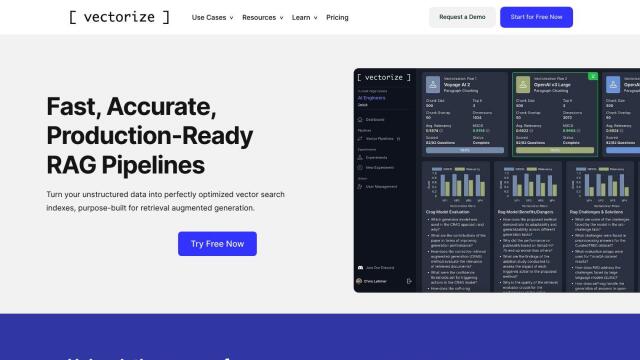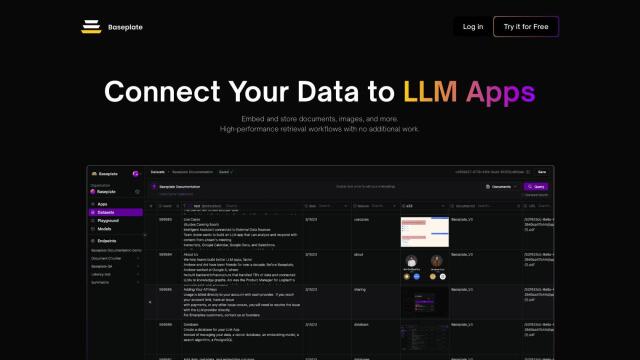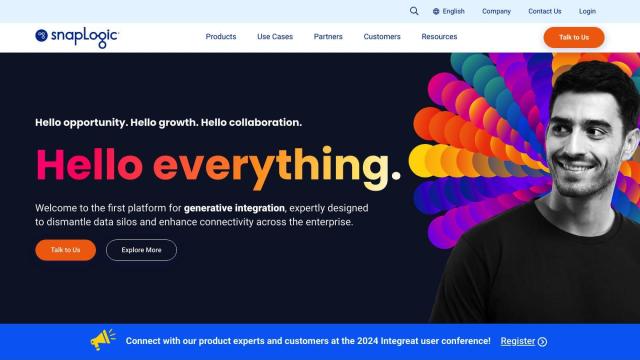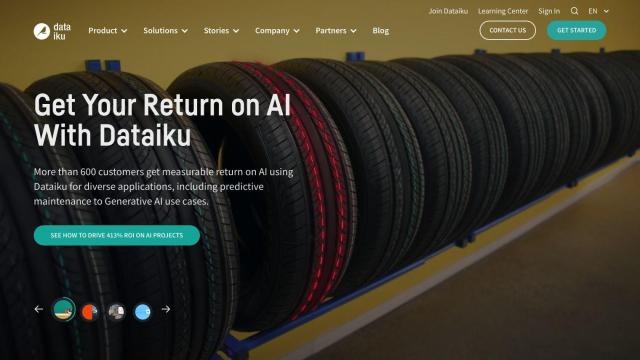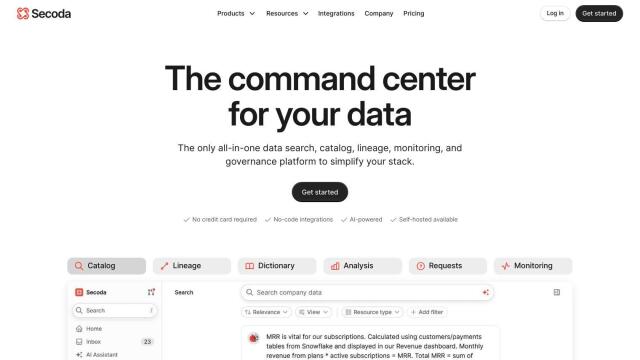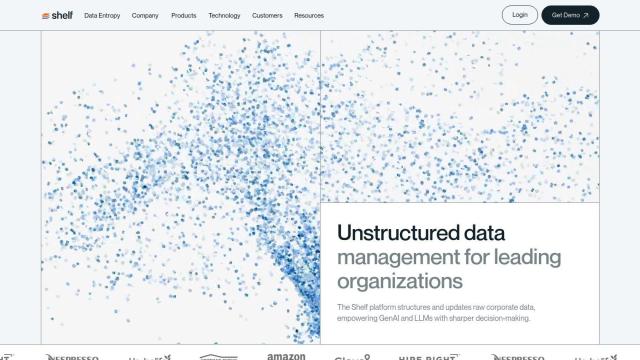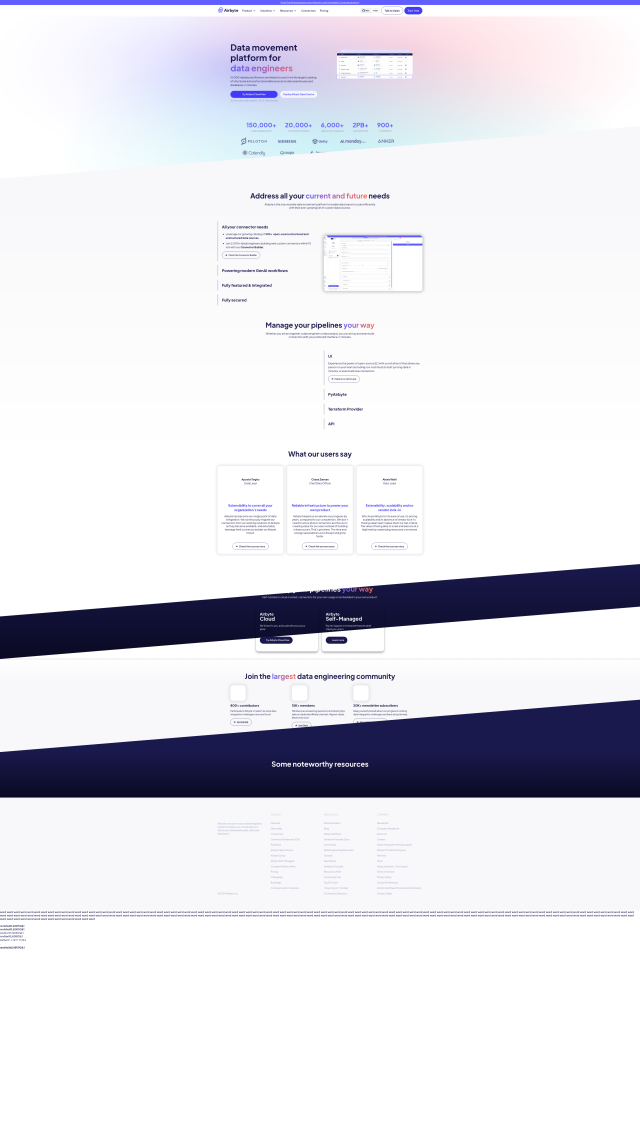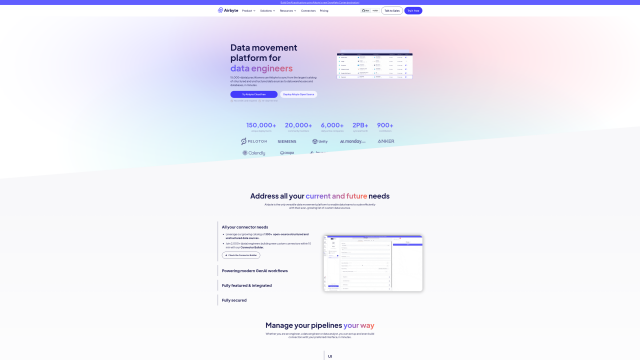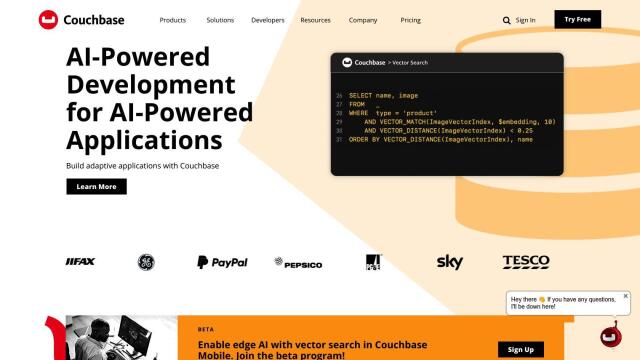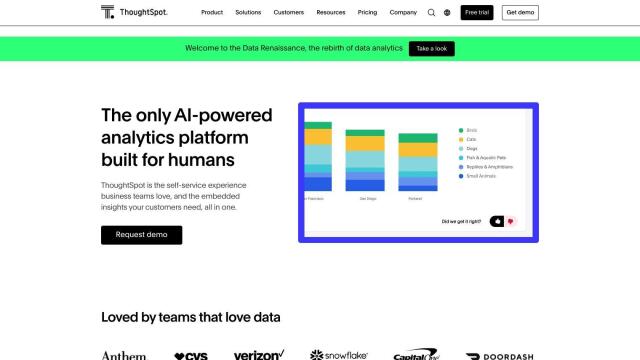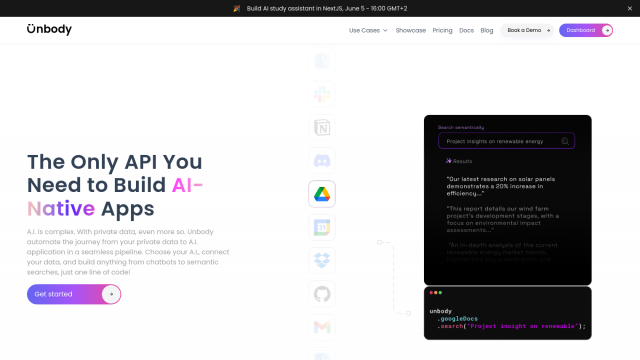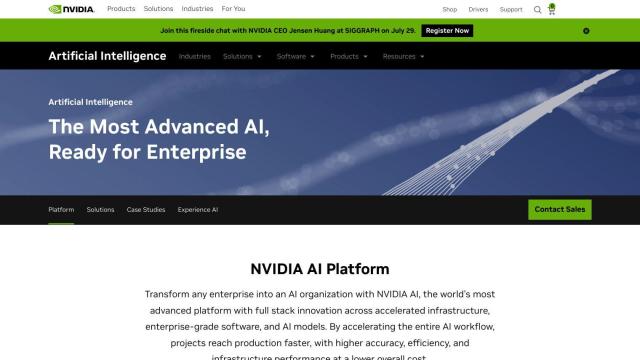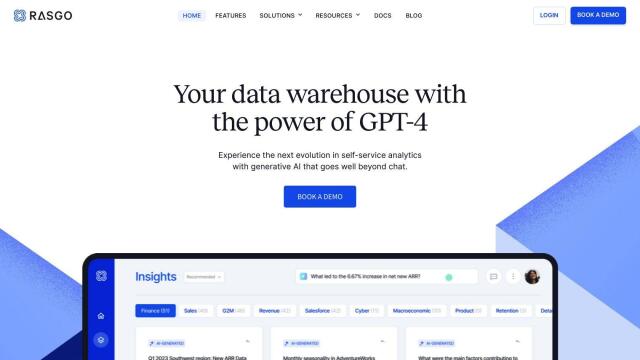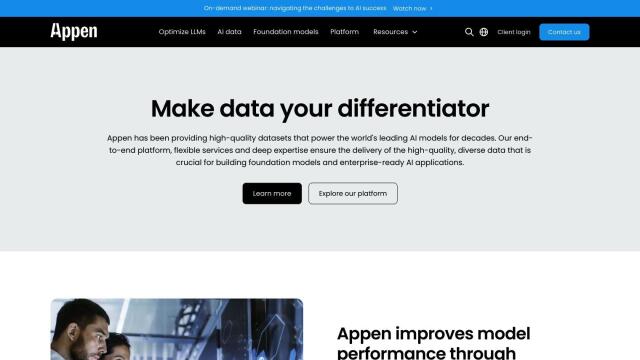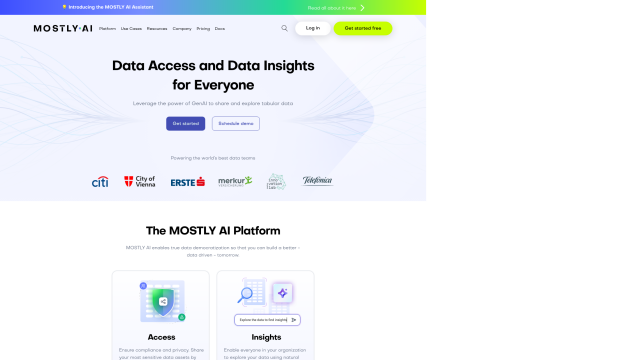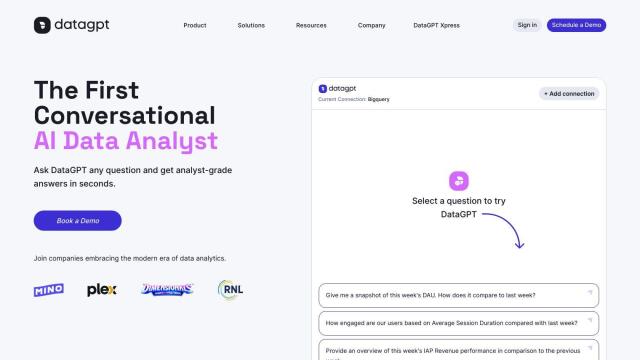Question: Is there a universal semantic layer that can help me connect and manage my data for AI and analytics applications?

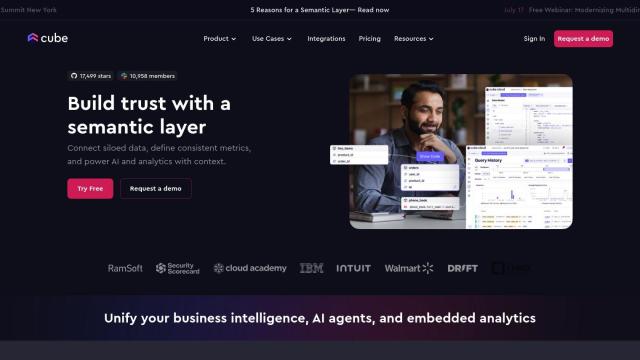
Cube
If you're looking for a universal semantic layer to connect and manage your data for AI and analytics applications, Cube is a strong contender. It combines business intelligence, AI agents and embedded analytics into a unified framework that offers a unified set of metrics and a unified source of truth for your data. Cube supports a broad range of data sources, BI tools and visualization libraries, and can connect to data warehouses like Snowflake and Amazon Redshift. It runs on Cube Cloud with a variety of pricing plans, so it's a good option for companies that want to streamline data operations and offer a unified analytics experience.

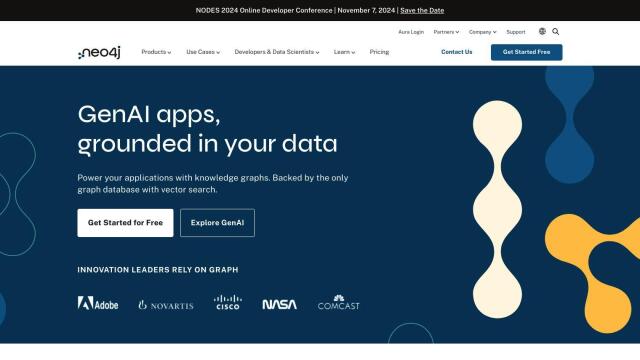
Neo4j
Another option worth considering is Neo4j, a graph data platform that's particularly good at connecting and analyzing complex data. It includes data science and machine learning support, vector search and analytics, making it a good choice for knowledge graphs, intelligent applications and real-time insights. Neo4j's graph-native scale and flexibility, combined with its enterprise-grade security, means it's a high-performance database for large-scale data sets.

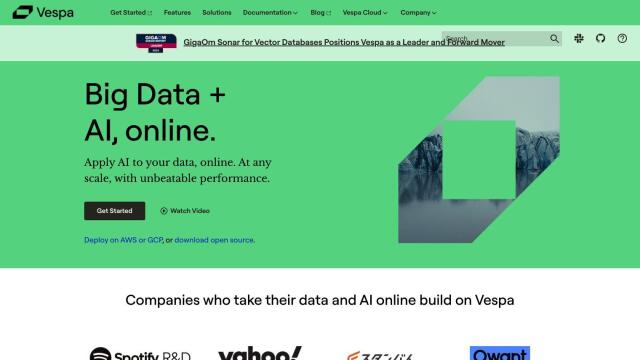
Vespa
For those who want to apply AI to big data sets, Vespa is a unified search engine and vector database that's good for fast vector search and machine-learned models. It's good for search, recommendation and personalization use cases, and integrates with a variety of machine learning tools. Vespa's auto-elastic data management ensures high end-to-end performance and low latency, so it's a good foundation for building high-scale AI applications.

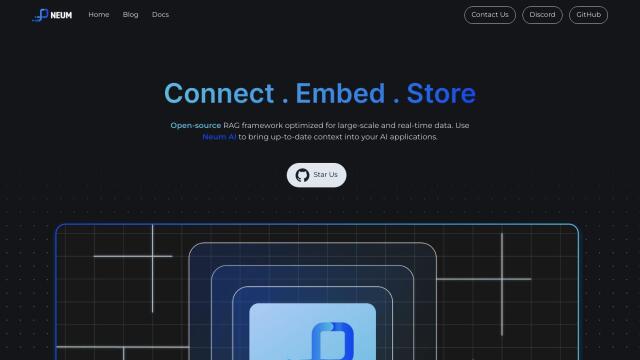
Neum AI
Last, Neum AI is an open-source framework for building and managing data infrastructure for semantic search. It converts unstructured and structured data into vector embeddings and supports scalable pipelines to process millions of vectors in real-time. Neum AI is designed for large-scale data use cases and integrates easily with services like Supabase, and offers a variety of pricing tiers to accommodate different needs and scales.

